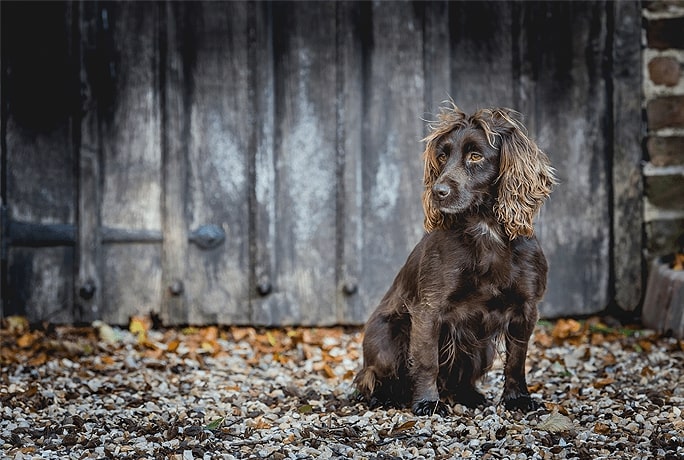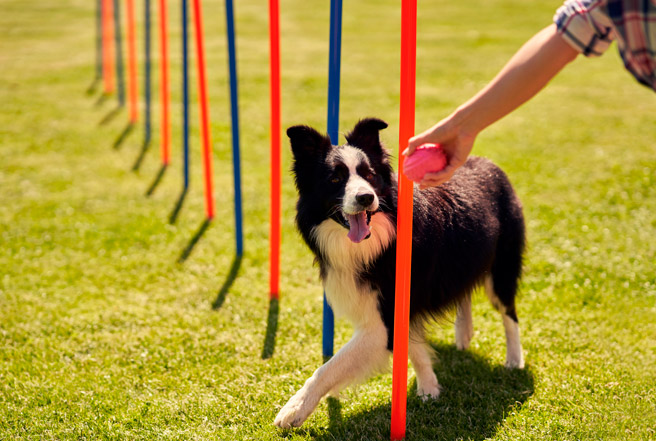Back to Basics: Canine Nutrition
Written by Zoe Russell, BSc (Hons), ANutr
Nutrition Officer, Skinner’s
As a first-time dog owner, the world of pet food and nutrition can be daunting. Even a simple web search can bring up a multitude of information (and mis-information), making things more and more complicated. To help answer your nutrition questions and dispel the myths, we have gone ‘back to basics’ with dog food.
What are carbohydrates?
Carbohydrates are one of six basic nutrient groups that are important for dogs. Carbohydrates provide the key source of energy for cells within the body and are described in two ways; simple or complex. Good sources of carbohydrates include rice, potatoes, wheat and oats. Although dogs don’t have a dietary requirement for carbohydrates, they form an important part of the diet. For example certain carbohydrates help to support digestive health, while others provide a source of energy for active dogs and those expecting a litter.
Pet food labels don’t have to list the total carbohydrate level, so you won’t usually see this on the back of the pack. However if you wanted to find this information out, then you can always just ask.
What is fat?
Dogs preferentially use fat as a source of energy as it provides double the calories of protein or carbohydrates, so packs more of a nutritional ‘punch’. Because of this, diets developed for more active dogs will often have a higher level of fat, while diets for more sedate dogs will usually have a lower level. Fat also provides a source of important fatty acids and helps with the absorption of certain vitamins.
The right level of fat for your dog will depend on how active they are, their life-stage and if they have any health issues. For example dogs who needs to lose weight or who are less active, they may suit a diet like Field & Trial Light & Senior which contains less fat at 8%. Or for those very active dogs who need a good source of fat to fuel longer periods of activity, they may be better suited to Get Out & Go! Extra Energy with 18% fat.
What is protein?
Protein is essential in the diet to support growth, repair and regeneration. Much of the body is made up of protein, so it’s important to provide a good quality supply to replace any lost in day-to-day activity. Protein can be supplied in the diet from both plant and animal sources, with ingredients such as grains actually being good sources of protein.
The protein level on-pack will give an idea of the nutritional value of the food and will vary depending on different factors such as the life-stage and activity level of the dog. In general, a low-moderately active dog will do very well on a diet with a protein level of about 18%, such as Field & Trial Maintenance. However very active dogs, pregnant/lactating dogs and growing dogs often need a higher protein level around 27-30%, which is why we often recommend a diet such as Field & Trial Puppy.
When should I change my dog’s diet?
The golden rule is to weigh your dog as regularly as you can. This can be done at the vets, or for smaller breeds, in your own home on a set of bathroom scales. To help gauge if your dog is a healthy weight, your vet should be able to suggest an ideal, current weight based on their breed, age and health status. Another important routine to adopt is regularly body condition scoring your dog and monitoring any changes. This involves visually assessing your dog and running your hands over them to check their muscle definition, fat distribution and overall shape. If you’re unsure how to body condition score, then a free, helpful guide is the ‘Dog-Size-O-Meter’.
If you notice your dog’s weight increasing/decreasing, then we would suggest adjusting their daily feed intake by around 10-20%. However if you need to go significantly above/below the feeding guidelines for them to maintain a healthy weight, then that’s where a dietary change may be needed.
Choosing the right diet
If you are unsure which diet is right for your dog, then why not try our online feeding guide for a tailored recommendation by clicking here. Alternatively, feel free to contact our in-house nutrition team; they would be happy to recommend a diet for your dog.
Contact us
If you need any further information, then please give our nutrition team a call on 01379 384247 or email us at nutritionsupport@skinners.co.uk.



